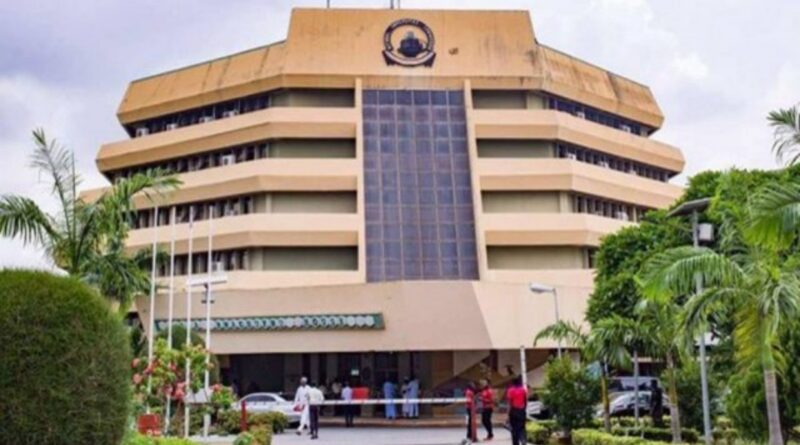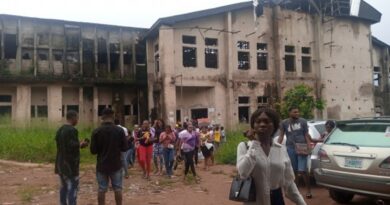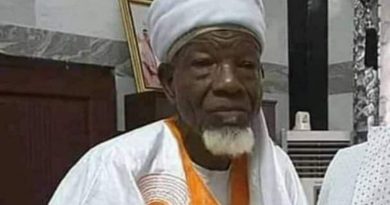A move to refocus, and redirect the university curriculum
By KAYODE OLANREWAJU
The consensus among critical stakeholders, especially university eggheads, is to rebrand the curriculum by blending humanities with science, as a major step to make university education more exciting to graduates as well as track national development
For almost three hours penultimate week, university eggheads, scholars and other critical stakeholders in the university education system brainstormed and shared thoughts on how best to transform the university system and position it to be more relevant to the development and employment aspirations of the Nigerian students, and the country in particular.
This is as the scholars interrogated the place of the Nigerian university system in the next 30 years, in terms of curriculum relevance and capacity in meeting its core mandates, amid the current challenges. To address these frontiers, they pushed for reordering and reconstruction of the university curricula, as the first major step, to align with the 21st Century requirements to build students’ capacity for a stable system.
The virtual and onsite International Colloquium, organized to celebrate the former Vice-Chancellor of the University of Ibadan (UI), Emeritus Professor Ayo Banjo, who clocked 88 years on May 2, 2022, provided a platform for intellectual discourse to chart a new direction for the Nigerian university education. Another focus of the international colloquium is to redirect and reshape Nigeria’s university education with a view to attaining global relevance, and to primarily prepare graduates adequately for the future world of work.
The theme of the colloquium, which was facilitated by the National Universities Commission (NUC) Strategy Advisory Committee (STRADVCOM) and the Nigerian Academy of Letters (NAL) is: “Nigeria in 2050 and the Future of Work: Blending Humanities with Science in University Education.”
According to the colloquium, if the Nigerian university system is to make headway, there is the need for blending humanities with science, as the only way to go, which should be pursued with all vigor and to be given the necessary attention in the curriculum by the NUC, the agency superintending university education in the country.
Setting the tone of the academic discourse, the Convener and former Executive Secretary of the National Universities Commission (NUC), Emeritus Professor Peter Okebukola in his keynote address, harped on the urgent need for the universities to blend humanities with science for the system is to be relevant in 2050.
Okebukola, who pointed out that one of the drawbacks of not solving the big problems of the world was the shallow communication between the humanities and science, said that the blending of humanities with science would go a long way in enhancing the production of graduates who will “see action” in 2050 and are “camera-ready” for the job opportunities of the future.
“The values and ethical principles of a society are shaped by history, philosophy, art, language, and of course science,” he stressed, noting further that while humanities empower individuals with a more plural perspectives on life, science allows humans to articulate and organize knowledge in a coherent, orderly way that fosters an understanding of the environment.
The blend of humanities and science, he said, is perhaps a magic bullet for a sustainable world, even as he added that scholars should now turn to the trigger for this blending business within the Nigerian university system in line with the NUC’s Blueprint 2018-2023.
Okebukola stated that the three years of the Blueprint have witnessed an unprecedented rigor in curriculum re-engineering, reconstruction, reconfiguration, and review, noting the target now is how to strategically harness science, technology, and innovation and enthrone a knowledge economy to be the hallmark of smart and digital economic planning in Nigeria of 2050.
However, in his situation analysis, he probed where Nigeria is with regard to the sector; where Nigeria is projected to be by 2050; the quantity and quality of graduates needed as human resources to drive the economy in 2050, especially about how many and of what quality of teachers, doctors, engineers, and agriculturists would be needed.
On “Future of Work: Dependent Variable of the Model,” as applied to the nature of employment the graduates will be engaged by 2050, Okebukola said the variable would measure its impact from four independent variables of blending, CCMAS, Blueprint 2018-2023 and Blueprint 2050.
To him, some of the “jobs of the future,” include Artificial intelligence (AI) and robotics specialist, space pilot, 3D printing engineer, big data manager, extinct species revivalist, cybersecurity professionals, computer and mathematical occupations, healthcare and healthcare support, counsellors and therapists, marketing professionals, construction trades, and operations specialties, among others.
Therefore, he said the focus of the university system should be how to align with these variables and intensifies efforts at equipping graduates of Nigerian universities with the 21st Century knowledge to be relevant for the future. But, however, he expressed concerns about whether the global trends will be dominating the Nigerian environment by 2050, given the slow grinding wheel of progress.
To realize the Blueprint 2050, Okebukola spoke of the need for entrepreneurs who can set up and manage small businesses whose operations depend on IT skills, since fewer labour hands will be on e-commerce; as well as teachers with requisite knowledge-skills to deliver online lessons and cope with very disruptive students who are under the influence of drugs and cults. In the areas of agriculture and governance, the Emeritus Professor noted that the country would require farmers who are adept at using basic technology to support their farming practices, as well as leaders with skills in managing diversity in all its forms and with a distaste for corruption.
Speaking further, Okebukola insisted that Nigeria needs healthcare providers skilled in the use of technology to diagnose and deliver quality healthcare; security agencies that are adept in the use of high technology for conducting the business of securing individuals and communities in the areas of crime detection, crime-fighting, and warfare; as well as a transportation system that is skilled for driving and maintaining electric vehicles and later, driverless cars.
Expressing his concerns, he highlighted some obstacles to the march to 2050, which he explained must be scaled in order to achieve the goal of preparing Nigerian graduates for future work. These factors, according to him, include those relating to government; students; teachers; parents, the private sector, and indeed other stakeholders, as evidenced in the weak proprietor commitment to sustainably entrench quality in the system to ensure the orderly development of university education.
Besides, he said there was the obstacle of institutional and human capacity deficit in resourcing of universities in terms of facilities for teaching, learning, and research which are weak, and the inhibiting factor of staff inadequacies in quantity and quality. Okebukola, who also listed instability in the academic calendar as one of the major handicaps, however, noted that the projections in the Blueprint documents were time-bound; saying that with frequent disruption to the academic calendar owing to strikes by university staff unions, the set targets for producing quality graduates to service the economy by 2050 cannot be achieved.
Therefore, the don recommended that humanities and science should not be immiscible like oil and water in the regime of the curriculum to be served, Nigerian university students. Thus, the former NUC Scribe, envisioned Nigeria of 2050 that contrasts significantly with the 2022 scenario beyond what we can now imagine and stressed that stark differences would be witnessed in the delivery of education, healthcare, security, governance, housing, transportation, and attention to climate change.
Hence, he explained that the job opportunities and occupations of 2050 would require Nigerian graduates that are prepared differently from current practice, saying “how do we prepare our university graduates for this future in a humanities-science blended environment?”
To address the challenges, he suggested the approach of integration by inoculation, based on blending humanities with science in university education towards ensuring that graduates are better prepared for that uncertain world of 2050 and beyond. “In curriculum lingo, how much of humanities should the science curriculum be sprinkled, spiced, or laced to assure a well-rounded science graduate; how much of science courses should a humanities student take to be a well-rounded graduate?
This choice will depend on the type of graduates the university desires to produce,” he added. To achieve the 2050 target, Okebukola recommended the establishment of an observatory of emerging jobs of the future by NUC where the Commission would periodically update vice-chancellors and other stakeholders in the Nigerian university system, including the private sector on the nature and demands of such jobs and what needs to be done to better prepare the graduates.
Other proposals include inculcation and development of 21st Century skills of digital literacy, problem-solving, creativity, and teamwork; training in learning how to learn by blending humanities with science; institutional and human capacity building to address the deficiencies in institutional and human capacities of universities through the upgrading of infrastructure and facilities for teaching, learning, and research.
Similarly, he also recommended the strengthening of entrepreneurship training beyond theory for the delivery of the curriculum to be more practical oriented; as well as an improved welfare scheme for staff, in terms of adequate motivation, which to him is key to the delivery of quality university education being canvassed by the colloquium.
Hence, he appealed that the ongoing discussions between the Federal Government and university staff unions should yield a remuneration package that will excite staff to put in their best in teaching, research, and community service. However, scholars and stakeholders at the colloquium, who described the blending as commendable as no aspect of knowledge could function in isolation, urged the university system to embrace this blend for the inherent benefits.
They also sought among other things, the reduction of the dichotomy between science and humanities in the curriculum, and challenged the adoption of “credit pass” in Mathematics for students in Humanities. Under the blending, students must take courses in other faculties while an interdisciplinary approach should be strengthened in the university system, in line with the reform of syllabus with the blending of science and humanities. While declaring open the colloquium, the Executive Secretary of NUC, who chaired the session, Prof. Abubakar Rasheed, said the agency was in such a haste to reposition the university system and make it globally competitive.
Rasheed, who was represented by the Deputy Executive Secretary (Administration), Dr. Chris Maiyaki, described Emeritus Professor Banjo “as an intellectual icon, an academic general and a father-figure, who has brought tremendous and transformative change to the Nigerian university system.” He said that when the “Monument of Nigeria University is built the name of Prof. Ayo Banjo will be engraved in Gold.” Discussants at the lecture include the former Education Minister, Prof. Ruqayyat Ahmed Rufa’i, who in her presentation, stressed the need for capacity and teamwork between humanities and science, as well as the basic background to expand the horizon of learners so as to make products of university system globally dynamic and competitive.
While stating that there should be a move from STEM to STREAM, the former Minister, who was also represented at the event, expressed support for the establishment of Academy of Humanities and Science, as well as the implementation of the proposed curriculum. Also, the former Vice-Chancellor of University of Port Harcourt, Emeritus Professor Nimi Briggs, however, extolled the virtues of the celebrant and described him as “one of Africa’s finest academics.”
He noted that the theme of the colloquium was the direction the country should go, saying but to achieve this, there is the need for improvement of welfare of university lecturers, saying that the Academic Staff Union of Universities (ASUU) is on always on strike because of funding challenge of the university system. “The university resources have dwindled significantly. But, the time has come to reflect on the cost and effects of strikes on academic activities,” Briggs added.
Former Vice-Chancellor of National Open University of Nigeria (NOUN), Prof. Abdalla Uba-Adamu, while underscoring the benefits of the blend of humanities with science, regretted that the university system had been operating what he described as “tyrannical curriculum of 1969,” which he stated had hindered its development by providing a strait jacket direction for the university education to move. “This has kept the NUC from expanding the curriculum and promoting the challenge in which parents want their children to study particular courses or career,” he said.
In his presentation, former Vice- Chancellor of OAU, Prof. Michael Faborode, threw his weight behind the infusion of humanities and science, as well as flexibility of the curriculum to achieve the target goals. On his part, the former Vice- Chancellor of the University of Ibadan, Prof. Olufemi Bamiro, who highlighted the relevance of the proposed curriculum to deliver the blend, insisted that the colloquium should be ready to prepare the contents of the curriculum.
Other discussants at the colloquium include Prof. Ayo Bamigbose; former Vice- Chancellors of UI, Prof. Idowu Olayinka and Prof. Olufemi Bamiro; Prof. Toyin Falola; JAMB Registrar, Prof. Is-haq Oloyede; Prof. Niyi Osundare; Prof. Duro Oni; OAU Vice-Chancellor, Prof. Eyitope Ogunbodede; Otunba Deji Osinbogun; CEO Chams Plc, Mr. Demola Aladekomo; Prof. Pai Obayan; Prof. OluTomori; Prof. Sola Akinrinade (the moderator) and Prof. Olu Obafemi; among others.








